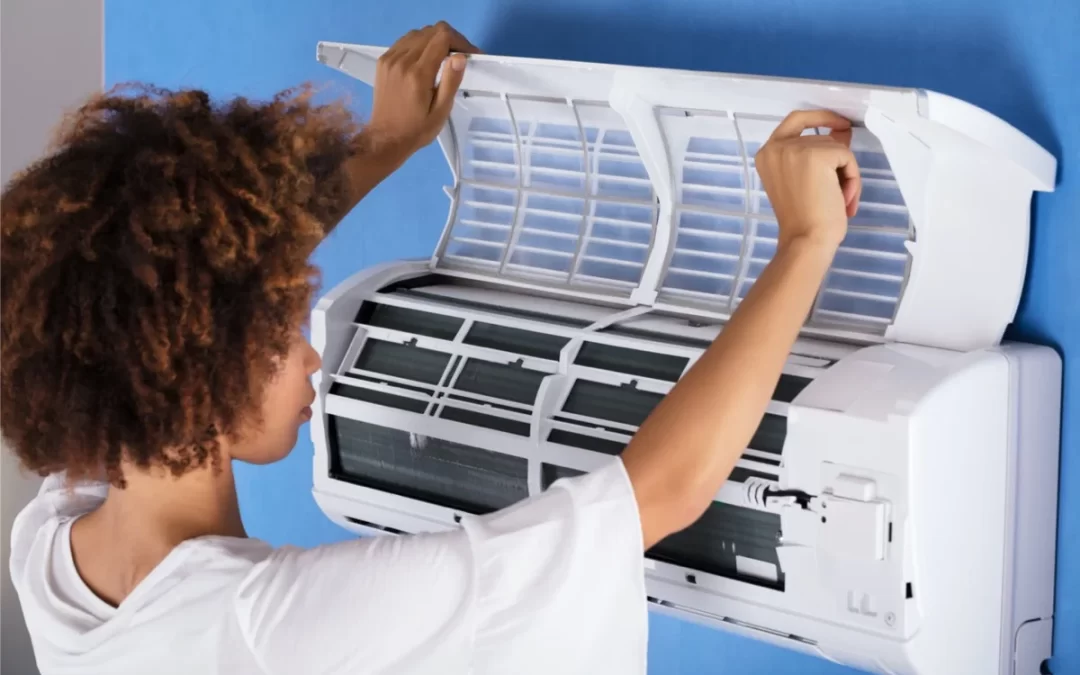Insufficient Water Supply:
The first and most prevalent cause of a water-cooled air conditioner failing to cool is an inadequate water supply. A constant stream of water is used by these systems to extract heat from the air within. Inadequate water flow prevents the system from efficiently absorbing and dissipating heat, leading to subpar cooling efficiency.
Examine the water supply valve or inlet to see if this is the source of the problem. Make sure the water can flow freely and that it is completely open. Also, make sure the water supply line is not leaking, since this could be the source of the reduced water flow. Moving on to the next point, if the water supply seems to be sufficient but the system is still not cooling, it’s probable that the water pump or circulation system could be malfunctioning.
Faulty Water Pump:
The water pump is an integral part of the HVAC system and is responsible for recirculating water. Ineffective cooling can occur if the pump is defective or malfunctioning, which might restrict water flow or cause circulation to stop entirely. Motor failure, blocked impellers, and airlock are common problems with water pumps.
If you hear any strange noises emanating from the water pump, such as grinding or rattling, it could be a sign of a problem with the impeller or motor. This is the first step in diagnosing a malfunctioning pump. Another thing to look for is any leakage around the pump housing; this could mean that the seal has failed. Get in touch with a professional HVAC specialist to check the water pump and, if needed, replace it if you think it could be the problem.
Dirty or Blocked Cooling Coils:
Water-cooled air conditioner cooling coils become unclean or clogged with dust, grime, and other debris over time. This prevents heat from escaping from the inside air and transferring to the water since less air can circulate through the coils. The system’s ability to efficiently chill the air may be compromised, regardless of the proper working of the water supply and pump.
To begin fixing this, look for obvious indications of dirt or debris accumulation on the cooling coils. If the coils seem grimy, gently scrub them with a gentle brush or the brush attachment of your vacuum cleaner. Never risk electric shock by cleaning or repairing an air conditioner without first turning off the power. Hiring a professional HVAC specialist could be necessary for a more comprehensive cleaning.
Scale Build-Up in the Water Circuit:
Mineral deposits, or scale, can build up in a water-cooled air conditioner’s water circuit with time. When scale forms, it can limit the flow of water, which in turn decreases the efficiency of heat transmission and makes cooling more difficult. Hard water, which is rich in minerals like magnesium and calcium, is a common cause of scale buildup.
Consider cleansing and descaling the water circuit as part of your routine maintenance to deal with scale buildup. Preventing scale buildup and ensuring optimal performance can be achieved with the use of descaling products or water treatment systems. Another way to lessen the impact of hard water and prevent scale buildup in air conditioners is to install a water softening system.
Incorrect Water Temperature:
The effectiveness of the air conditioner’s cooling system is greatly affected by the temperature of the water that circulates through it. It is possible to influence the effectiveness as well as efficiency of the cooling process by adjusting the water temperature. Water at a high temperature reduces the air conditioner’s cooling capacity, while water with a low temperature makes it work less efficiently or even freezes up.
To get the most out of your air conditioner, use a thermometer to check the water’s temperature as it enters and leaves the unit. Please refer to the manufacturer’s instructions or specifications for assistance on the appropriate water temperature, as it will differ based on the individual design and requirements of your system. Make the necessary adjustments to the water supply or call a professional HVAC specialist for help if the water temperature is too high or too low.
Inadequate Water Pressure:
Appropriate water pressure is essential for the efficient and effective operation of water-cooled air conditioners. Both low and high water pressure can have a detrimental effect on the efficiency and effectiveness of the cooling system. Inadequate water flow can be caused by low water pressure, whereas leaks, system damage, or water hammer effects can be caused by high water pressure.
Take readings at the air conditioner’s input and output using a pressure gauge to verify the water pressure. Be sure to compare the values to the water pressure range recommended by the manufacturer for your particular model. Make the necessary adjustments to the water supply or install pressure regulators to keep the water pressure steady if it falls outside of the permissible range.
Air Locks in the Water Circuit:
Problems with water flow and cooling efficiency can arise when air locks, also known as trapped air pockets, accumulate inside the water circuit of a water-cooled air conditioner. Air locks can develop as a result of faulty installation, water leaks, or fluctuations in system pressure.
To remove air locks, open the bleed valves or vents at high places in the system to remove air from the water circuit. Find the highest point in the water circuit, such the cooling tower or the pipes, then open the bleed valve to release any trapped air. To make sure the water is flowing properly and the cooling is working properly, keep bleeding the air out of each vent or valve in sequence until there are no more air bubbles.


